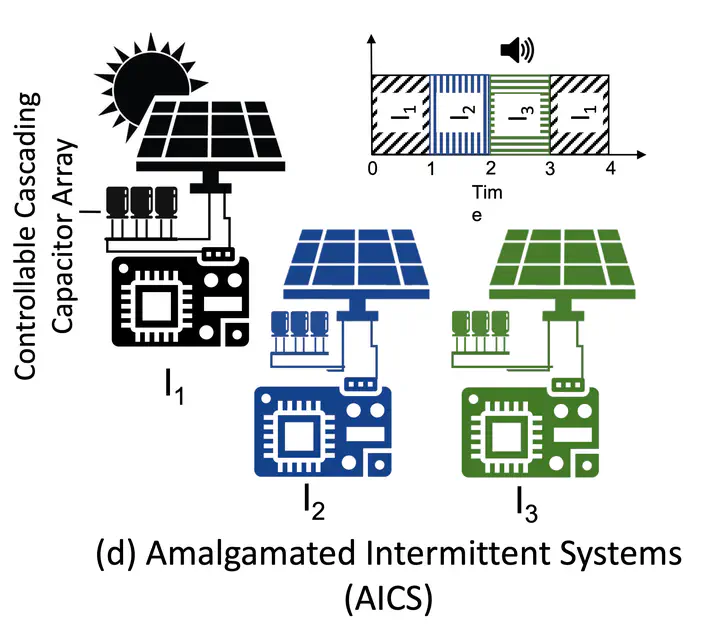Amalgamated Intermittent Computing System

Abstract
Intermittent computing systems undergo frequent power failure, hindering necessary data sample capture or timely on-device computation. These missing samples and deadlines limit the potential usage of intermittent computing systems in many time-sensitive and fault-tolerant applications. However, a group/swarm of intermittent nodes may amalgamate to sense and process all the samples by taking turns in waking up and extending their on-time. However, coordinating a swarm of intermittent computing nodes requires frequent and power-hungry communication, often infeasible with limited energy. Though previous works have shown promises when all intermittent nodes have access to the same amount of energy to harvest, work has yet to be looked into scenarios when the available energy distribution is different for each node. The proposed AICS framework provides an amalgamated intermittent computing system where each node schedules its wake-up schedules based on the duty cycle without communication overhead. We propose one offline tailored duty cycle selection method (Prime-Co-Prime), which schedules wake-up and sleep cycles for each node based on the measured energy to harvest for each node and the prior knowledge or estimation regarding the relative energy distribution. However, when the energy is variable, the problem is formulated as a Decentralized-Partially Observable Markov Decision Process (Dec-POMDP). Each node uses a group of heuristics to solve the Dec-POMDP and schedule its wake-up cycle. We conduct a real-world experiment by implementing a deep acoustic event classifier in three MSP430 microcontrollers. AICS successfully captures and processes 41.17% more samples than a swarm of greedy intermittent computing systems while spending 69.7% less time with multiple redundant active systems. Our simulation-based evaluations show a 35.73%–54.40% higher compute and process success rate with AICS than with state-of-the-art algorithms (including reinforcement learning).